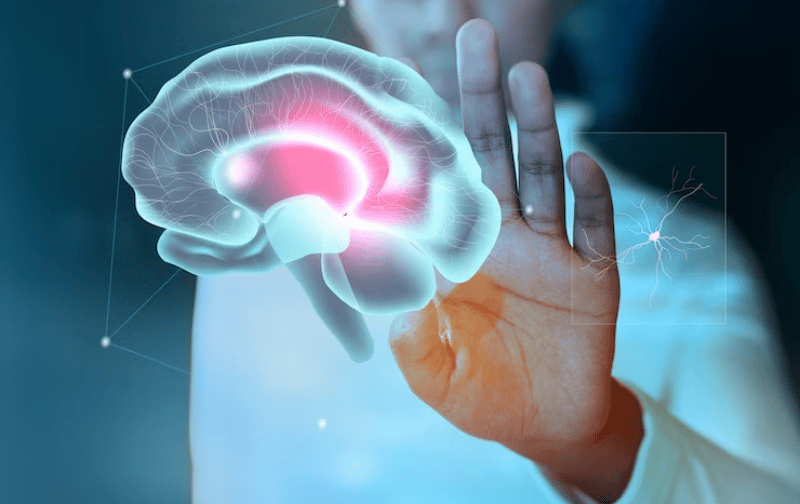Category: Neuro Therapy Course
Is Neurotherapy Right for You?
Are you wondering if Arogya Neurotherapy is right for you? Discover the 7 symptoms that indicate you may benefit from this effective, drug-free healing procedure based on natural science.
Why People Are Turning to Neurotherapy:
From chronic pain to hormone issues, thousands are abandoning medications in favor of natural therapeutic approaches such as Arogya Neurotherapy. But how can you know if it is good for you?
This article will show you seven distinct signals that you should investigate neurotherapy—and how it can naturally alter your health.
You’re Tired of Relying on Painkillers
Do you pop painkillers for headaches, back pain, or joint issues?
🚫 Problem:
Painkillers only block the pain temporarily. Over time, they damage the liver, kidneys, and stomach lining.
✅ Neurotherapy Solution:
It addresses the root cause by:
-
Stimulating nerve pathways
-
Improving blood and energy flow
-
Relaxing muscular and nervous tension
You Have a Chronic Condition That Won’t Go Away
Suffering from:
-
Diabetes or high blood pressure?
-
Thyroid or hormonal imbalance?
-
Acidity, IBS, or poor digestion?
🔴 The Problem:
Chronic diseases often stem from systemic imbalances in nerves, hormones, and circulation—something most allopathic medicines manage, but don’t cure.
🌱 Neurotherapy reboots your system through:
-
Hormone control points
-
Nervous system balance
-
Detoxification and energy realignment
You Struggle with Mental Health or Sleep Issues
Feeling:
-
Mentally drained?
-
Constantly anxious or irritable?
-
Sleep-deprived, even after 8 hours?
💊 Most treatments involve antidepressants, sleeping pills, or sedatives—with heavy side effects.
✅ Arogya Neurotherapy:
-
Calms the nervous system
-
Balances cortisol and melatonin naturally
-
Improves oxygenation to the brain
3 out of 5 people report improved sleep and mood within 2–4 sessions.
You’re Looking for Safe Healing Without Side Effects
Modern medicine can be life-saving—but often comes with side effects like:
-
Drowsiness
-
Weight gain
-
Digestion issues
-
Skin breakouts
-
Hormonal chaos
Arogya Neurotherapy:
-
Is non-invasive
-
Has zero side effects
-
Is safe for children, seniors, and pregnant women
You’re Recovering from Surgery or Trauma
Whether it’s:
-
A sports injury
-
Back or knee surgery
-
Long-term illness recovery Problem: Recovery is often slow and painful due to poor circulation, nerve fatigue, or blocked healing responses.
✅ Neurotherapy speeds up recovery by:
-
Boosting blood and lymph flow
-
Reactivating nerve signals
-
Reducing inflammation
You Want a Holistic Way to Manage Women’s Health
Arogya Neurotherapy is widely used to treat:
-
PCOS
-
Irregular periods
-
Menstrual pain
-
Infertility
-
Pregnancy discomfort
-
Menopausal symptoms
It works by balancing the endocrine system naturally through precise nerve stimulation.
“I had PCOS for 4 years. After 6 weeks of therapy, my periods became regular!” – Arogya Patient, Lucknow
Check our previous article: Top 5 Myths About Neurotherapy — And the Surprising Truth!
You Believe in the Body’s Power to Heal Itself
At its core, Arogya Neurotherapy is built on the principle that:
“The body is capable of healing itself—if given the right tools.”
Unlike conventional treatments that suppress symptoms, this therapy:
-
Identifies root imbalances
-
Activates natural responses
-
Restores harmony in the body
📞 Ready to Begin?
📍 T 76 Shivalik Nagar haridwar
📞 Call or WhatsApp: +91-6396200548
🌐 Book Now: https://arogya.com/
Neurotherapy vs Modern Medicine
The significant that modern Neurotherapy vs Modern Medicine diverge. When choosing your healing path, weigh the benefits and drawbacks of each strategy.
Introduction: Your Health: Two Routes, One Objective
The majority of individuals today confront a conundrum when it comes to mental and physical healing:
- Should I follow Modern Medicine because of its clinical support and quick results? Or consider neurotherapy, a drug-free, natural method based on nerve system stimulation and body balance.
Your wellness is the ultimate goal of both systems. However, their approaches, philosophies, rates, adverse effects, and long-term effects vary greatly.
We’ll outline the seven main distinctions between Neurotherapy vs Modern Medicine in this post so you can make an informed decision or even mix the best aspects of both.
What is Neurotherapy?
Neurotherapy, often practiced as Arogya Neurotherapy in India, is a holistic, non-invasive system that works by stimulating pressure points on the body. These points regulate nerve flow, organ function, and hormonal balance.
-
💊 No medicines or surgery
-
🧘♂️ Focus on root cause
-
🌿 Based on ancient Indian principles of health
-
👣 Safe for all ages — from children to seniors
What is Modern Medicine?
Modern or Allopathic Medicine is a science-based system that uses:
-
Drugs, surgery, or radiation
-
Advanced diagnostics (MRI, blood tests)
-
Specialist-based treatments (e.g., cardiologist, endocrinologist)
It’s widely practiced in hospitals and clinics worldwide and is often the first choice for emergencies and acute conditions.
7 Powerful Differences Between Neurotherapy and Modern Medicine
1. Approach to Healing: Root vs. Symptoms
Neurotherapy:
✅ Targets the root cause by balancing the nervous system
✅ Believes pain or illness is a signal of deeper imbalance
✅ Heals over time by correcting energy flow and nerve function
Modern Medicine:
❌ Often treats symptoms, not the underlying cause
❌ Quick relief through pills or injections
❌ May require lifelong medication for chronic conditions
Result: Neurotherapy may take longer but aims for permanent correction, while modern medicine offers fast, short-term relief.
2. Use of Medication
Neurotherapy:
✅ Completely drug-free
✅ No antibiotics, steroids, or chemicals
✅ Avoids liver/kidney load or long-term damage
Book a Consultation Today for Meditation Classes
Experience how Arogya Neurotherapy can change your health — naturally.
Call/WhatsApp: [+91-6396200548]
Visit Us: [T 76 Shivalik Nagar haridwar]
Website: [https://arogyaneurotherapy.com/]
Modern Medicine:
❌ Heavy reliance on pharmaceuticals
❌ Common side effects like acidity, drowsiness, weight gain
❌ Risk of dependency or resistance (especially with antibiotics)
Result: Neurotherapy wins for safety and zero side effects, but modern medicine may be essential for infections or acute issues.
3. Diagnostics & Technology
Modern Medicine:
✅ Uses advanced tools — blood tests, CT scans, X-rays
✅ Faster identification of internal problems
✅ Ideal for emergency or surgical conditions
Neurotherapy:
❌ Diagnosis is manual — based on symptoms, nerve pathways, and physical analysis
✅ More suitable for chronic or lifestyle diseases than acute trauma
Result: Modern medicine has an edge in technology and diagnosis, but neurotherapy focuses on functional recovery post-diagnosis.
4. Holistic Wellness vs. Specific Targeting
Neurotherapy:
✅ Treats body and mind as one
✅ Improves overall vitality, immunity, and sleep
✅ Often combines lifestyle, diet, and posture correction
Modern Medicine:
❌ Focuses on specific organs or issues (e.g., diabetes = insulin)
❌ Ignores emotional, mental, or energetic factors in most cases
Result: Neurotherapy promotes whole-body wellness, while modern medicine zooms in on isolated problems.
5. Speed of Results
Modern Medicine:
✅ Fast relief for pain, infection, fever
✅ Immediate action with injections, pills, or surgery
✅ Best for emergencies and critical care
Neurotherapy:
❌ May take 3–10 sessions for noticeable results
✅ Effective in chronic pain, hormonal issues, stress, etc.
✅ Encourages natural healing pace
Result: If you’re in pain or danger, modern medicine is faster. But for long-term balance, neurotherapy is worth the wait.
6. Cost & Affordability
Neurotherapy:
✅ Lower per-session cost
✅ No medicine, lab tests, or surgery charges
✅ More affordable for middle-class and senior citizens
Modern Medicine:
❌ Can be very expensive with repeat consultations
❌ Medicine + diagnostic + surgery = high total cost
❌ Insurance helps, but not always for chronic issues
Result: Neurotherapy is budget-friendly and ideal for long-term care without financial strain.
Side Effects & Risk
Neurotherapy:
✅ Almost zero risk when done by trained experts
✅ No toxicity, organ damage, or dependency
✅ Even safe during pregnancy or in children
Modern Medicine:
❌ Side effects common — from mild (nausea) to severe (organ damage)
❌ May cause long-term complications in hormonal treatments, surgeries
❌ Risk of surgical error, overdosing, or incorrect medication
Result: Neurotherapy is the safer, side-effect-free choice, especially for those sensitive to chemicals.
Negative Sentiment: When Neurotherapy Might NOT Be Enough
While neurotherapy is highly effective, it’s not a replacement in emergencies. You should not rely on it alone for:
🚨 Heart attacks
🚨 Severe infections
🚨 Bone fractures
🚨 Cancer or tumors
In these cases, modern medicine is life-saving and irreplaceable.
Positive Sentiment: Can You Combine Both?
Yes — and in many cases, that’s the best strategy.
🟢 Use modern medicine for diagnosis, acute conditions, and immediate crisis management.
🟢 Use neurotherapy for recovery, lifestyle correction, stress management, and chronic health.
Thousands of people today are using this integrated approach with incredible results.





